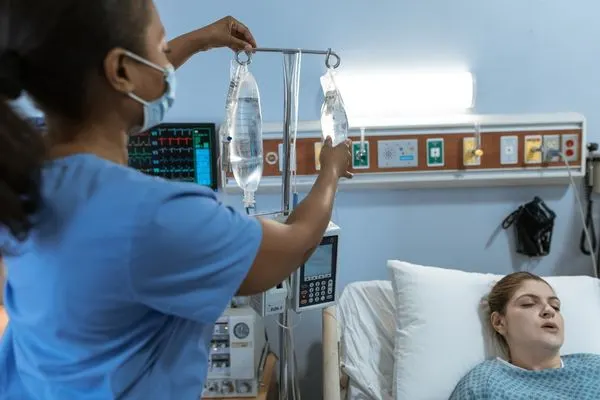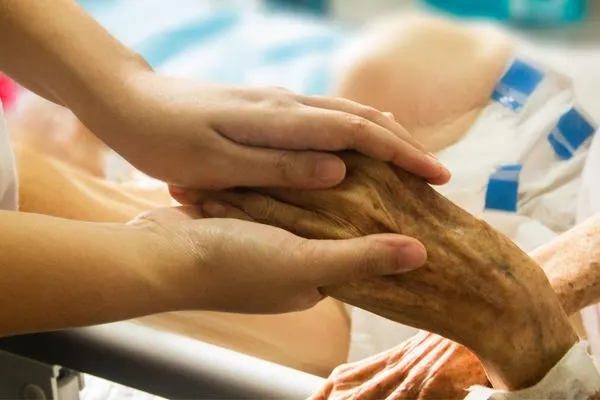If you’re considering a career as a nurse, congratulations! Nursing is an incredibly rewarding profession that has the potential to make a real difference in people’s lives. Becoming a nurse isn’t always easy, but with the right approach, it can be achievable. In this article, you will learn how to become a nurse step-by step.

Step 1: Research Different Nursing Paths
The first step to becoming a nurse is to familiarize yourself with the different nursing roles and pathways available. Do you want to become an RN (Registered Nurse) or an LPN (Licensed Practical Nurse)? Do you want to work in a hospital or in private practice? What kind of patients do you want to work with? These are all questions you need to answer before deciding which route is best for you.

What Is The Difference Between LPN or RN?
The job responsibilities for each nurse vary depending on their experience level and work environment. Compared to Licensed Practical Nurses, Registered Nurses have a wider scope of practice. However, don’t get too caught up in the distinctions, as there are several healthcare settings or states where LPNs can start an IV. Moreover, in clinics, you’ll most likely find LPNs doing the education reinforcement to patients.

LPN Job Responsibilities
Generally speaking, LPNs focus on providing fundamental patient care. And again, depending on your state or work setting, there can be small nuances in your scope of practice — but overall, LPNs are responsible for:
- monitoring vital signs,
- administering medications
- providing wound care treatments
- testing urine samples
- collecting patient data for medical records
- monitoring patient progress
- reporting changes in condition to the medical provider

RN Job Responsibilities
Registered nurses typically handle more complex tasks such as creating patient care plans based on diagnosis/treatment orders from the provider. They also provide guidance and support to other healthcare professionals including LPNs and nurse aides. In addition, they are capable of completing any task LPNs undertake. This includes:
- assessing patients
- creating patient care plans
- administering medications
- performing diagnostic tests
- operating medical equipment
- educating patients on health topics

Step 2: Get Your Education
Once you know what type of nurse you want to be, it’s time to start your education. Most nursing programs require applicants to have at least a high school diploma or GED. RNs will need at least an associate degree; many hospitals prefer bachelor’s degrees and some nurses may even choose to pursue master’s degrees in specialized areas like midwifery or nursing administration.
In addition, nurses must complete a state licensing exam, which typically include both written and practical components. Depending on the type of nursing role desired, additional certifications or specializations may also be required.

LPN Education
The educational requirements for becoming an LPN or RN are different. Upon completing a high school diploma or GED, you’ll be required to attend and complete an accredited 12-month practical nursing program offered at vocational schools, community colleges, and universities.
RN Education
The process for becoming an RN is more involved because you must complete either an associate degree in nursing (ADN) or a bachelor of science in nursing (BSN). Depending on which program you choose, it can take anywhere from two to four years to complete your studies.

Certifications and Licensures
When it comes to certifications and licensures, LPNs must pass the NCLEX-PN exam while RNs must pass the NCLEX-RN exam. Both exams are administered by the National Council of State Boards of Nursing (NCSBN). Once you pass your respective exams, you are eligible for licensure in your state.
Additionally, many nurses opt to obtain additional certifications such as Certified Medical-Surgical Registered Nurse (CMSRN), Certified Emergency Nurse (CEN), or Advanced Cardiac Life Support Certification (ACLS).

Step 3: Start Your Career
After completing your education and passing any necessary exams, it’s time to start your career! Nurses are employed in hospitals, private practices, and other healthcare settings where they provide medical care and advice for their patients. You can even work remotely as a nurse!
As part of the job duties, nurses may perform physical examinations, administer medications, provide treatments, monitor patient progress over time, educate patients and families on preventative health measures, and more depending on their specialization and experience level.

Final Take On How To Become A Nurse
Becoming a nurse takes dedication and hard work—but it can be incredibly rewarding! With this step-by-step guide as your roadmap, becoming a nurse doesn’t have to feel overwhelming anymore—you can break down each step into manageable tasks that will eventually lead up to success! Whether your goal is just beginning your journey towards becoming an RN or advancing your current practice through additional certifications or specializations—with focus and determination there’s nothing stopping you from achieving your dreams of becoming a nurse! Good luck!